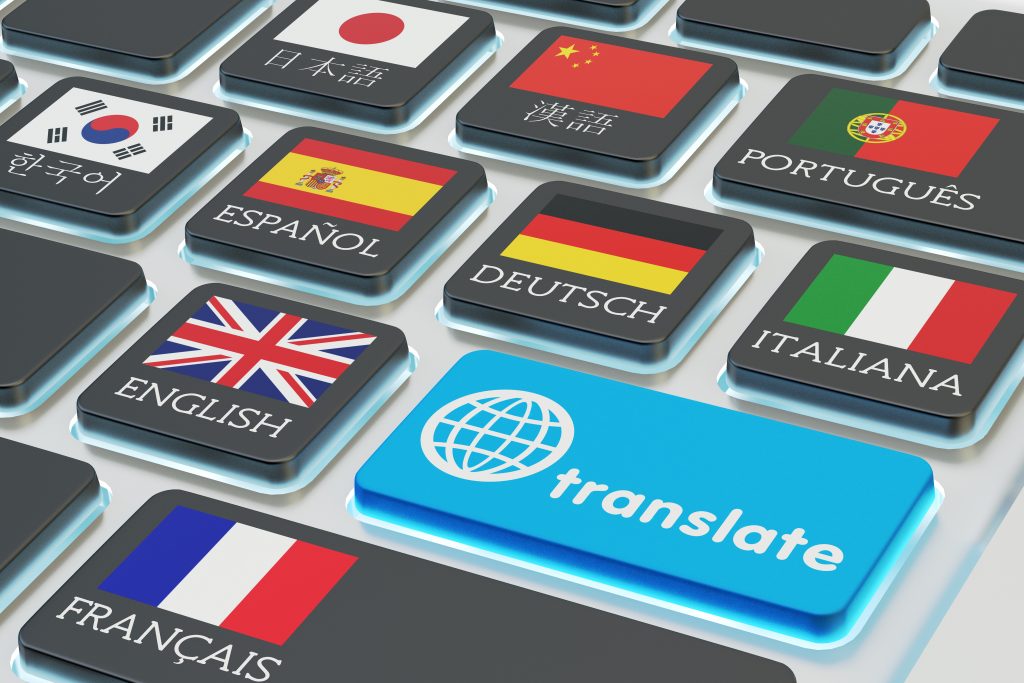With the increased costs of living mentioned practically everyday in the News at the moment, we thought it would be beneficial to our clients to explain how we set our translation fees. We thought this would be a useful exercise, to also help our clients, who are getting translations carried out on behalf of their clients, have a useful resource for explaining fees.
So what are the factors that can affect the translation fee?
The translation fee will depend on how long the document is, what format it’s in, which languages are involved, how specialised the copy is and a whole bunch of other factors.
Let us break this down.
Length/volume
Length is a major factor in the cost of translation services. The longer a document is, the longer it will take to translate, so the more it will cost. That said, there’s also potential to negotiate a discount when it comes to large and bulk translation projects, so it’s always worth asking about this when you’re getting quotes for translation rates.
Rarity of the language pair
The next biggest factor to influence translation prices is the languages that you need. The language services industry is subject to the pricing pressures of supply and demand, just as other sectors are. In simple terms, the more qualified linguists there are for a language, the more translators there are, so the lower the cost will be.
Expertise
Technical texts require a certain level of expertise on the translator’s part in the subject matter of the text. A legal contract for example, will need a translator with legal experience, whilst a medical report will call for a translator with medical expertise. As such, translator qualifications are a major factor in the cost of the translation.
Urgent translations
If you need a translation at short notice, that can also drive up the price. Urgent translations mean that translators will have to rearrange other work they’re doing to prioritise yours. They may have to work outside of their usual working hours to complete the job on time. As such, translation rates for urgent translations tend to be higher.
Purpose of use
The use of the translated copy also plays a role in translation costs. There are various reasons behind this. Marketing copy, for example, may require special formatting and desktop publishing skills – or perhaps even transcreation (this is used for copywriting when the content isn’t translated word for word, but adapted creatively for the target market). Specialist skill requirements will raise the professional translation service price.
For translation documents that are going to be used in legal settings (courts or immigration applications, for example), sworn translation might be a requirement.
This would add to the translation fee, as it requires specialist input from additional individuals.
The use of a translation may require us to undertake additional steps as well – additional quality checks, for example. Any such steps that clients request will increase the translation rates that projects incur.
Cost of living
Even the location of the translator can impact their translation rate per word, and thus the overall cost of the job. This local element to pricing means that translators in countries where the cost of living is higher have to charge more than those where it’s lower.
While this might lead to a temptation to use translators based in other locations, it’s worth remembering the value of local knowledge. If you’re trying to enter into a new market, it’s the translators in that local market who stand the most chance of enabling you to connect with local people. Using translators elsewhere can mean your copy is out of touch with local expressions, terminology and popular culture references.
The added-value of using a translation agency
A translation company like Dixon Associates provides added value on top of the translation work being undertaken, which may affect the translation pricing. Of course, these additional elements also deliver extra value, which is why so many clients opt to use translation agencies to meet their language-related needs.
Below are a few examples of the added extras that agencies like Dixon Associates deliver as part of their work, impacting the average price for translation services that they charge. We’ve also included some ways in which using a translation agency may be able to save you money on your translation rates as well.
Project management and maintenance
Having the agency act as the bridge between you and a dozen language professionals is one of the many perks that businesses get when they use a translation company. Project managers and other team members provide a comprehensive (one-stop) service that delivers oversight of the project from start to finish. This is invaluable for large-scale projects and those that involve multiple linguists and other professionals (developers, desktop publisher, etc.).
Furthermore, maintaining translation glossaries for prolonged collaborations is a part of translation agencies’ remit. This means that, for your future translations, the agency will have a bank of terminology specific to your business. This can deliver outstanding consistency across your documents, as well as speeding up future work.
Translation tools
Translation memory tools can also speed up the process and enhance the quality of your translations ensuring consistency across the board.
Quality assurance
Staff such as project managers and customer service personnel are all part of the outstanding customer experience when you use a translation agency like Dixon Associates. They work together with translators to ensure the quality of your experience from a language perspective and a management perspective. Membership of translation quality organisations such as the Association of Translation Companies and the Institute of Linguists ensure stringent regulations are observed in the translation of your documents, offering peace of mind to each and every client.
Build up of long-term relationships
In business, long-term relationships can sometimes result in preferential pricing. As such, it’s time to think strategically about building up a long-term relationship with a translation company. Getting a quote for a job that incorporates 20 documents might generate a discount, for example, but feeding documents piecemeal to the agency is unlikely to do so. Thinking strategically about your translation needs and forging ahead with a partnership mindset could therefore pay dividends when it comes to the translation rates per word that you’re quoted.
If there’s still more that you would like to know, feel free to get in touch with us by email info@dixon-associates.co.uk or visit our website at www.dixon-associates.co.uk or call us on 01952 288230. We would love to hear from you.


